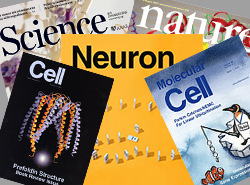Publication of IMPRS-LS students Nadia Huisjes and Thomas Retzer

Huisjes, N.M.#, Retzer, T.M.#, Scherr, M.J., Agarwal, R., Rajappa, L., Safaric, B., Minnen, A., and Duderstadt, K.E.
(IMPRS-LS students are in bold, #equal contribution)
Elife, 2022, 11.
doi: 10.7554/elife.75899
The rapid development of new imaging approaches is generating larger and more complex datasets, revealing the time evolution of individual cells and biomolecules. Single-molecule techniques, in particular, provide access to rare intermediates in complex, multistage molecular pathways. However, few standards exist for processing these information-rich datasets, posing challenges for wider dissemination. Here, we present Mars, an open-source platform for storing and processing image-derived properties of biomolecules. Mars provides Fiji/ImageJ2 commands written in Java for common single-molecule analysis tasks using a Molecule Archive architecture that is easily adapted to complex, multistep analysis workflows. Three diverse workflows involving molecule tracking, multichannel fluorescence imaging, and force spectroscopy, demonstrate the range of analysis applications. A comprehensive graphical user interface written in JavaFX enhances biomolecule feature exploration by providing charting, tagging, region highlighting, scriptable dashboards, and interactive image views. The interoperability of ImageJ2 ensures Molecule Archives can easily be opened in multiple environments, including those written in Python using PyImageJ, for interactive scripting and visualization. Mars provides a flexible solution for reproducible analysis of image-derived properties, facilitating the discovery and quantitative classification of new biological phenomena with an open data format accessible to everyone.
